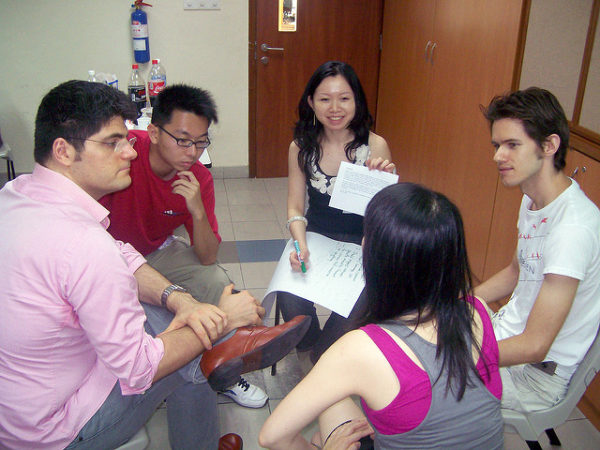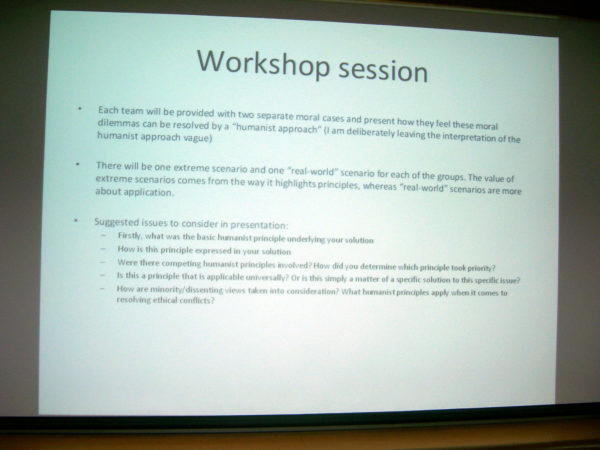The Singapore Humanism Meetup (SHM) organised a workshop on ethics on 26 September, 2009. The workshop, designed to be generally light and casual, is lead by WT.
WT stressed that this isn’t a workshop to present what he thinks is ethical, but to highlight ethical issues common to the human condition, and invite people to resolve these from the humanist point of view. It hopes to explore whether there ethical ramifications to the humanist philosophy beyond rejecting the supernatural.
Therefore, the workshop is not meant to provide any universal prescription, but to get people to ponder and discuss on certain ethical issues, and hopefully find common ground.
The short powerpoint presentation given before discussion begins covered definitions of humanism, meta-ethics, normative ethics, and evaluating ethical standards descriptively along several broad axes such as:
1) Means vs ends
2) Individual vs group
3) Rights vs duties
4) Objective vs subjective
5) Casuistry vs principle
After the presentation, workshop participants broke up into 4 discussion groups of 3-4 people, and each group are given 2 case studies to discuss.

The imaginary scenarios touch upon dilemmas a person would encounter in life, such as sacrificing lives for the greater good, speaking up on uninformed choices, and whether to respect the rights the individual have.
Throughout the workshop, there were certain trends during the discussion that indicate some common ground, and generally most participants agree that humanism should be about benefiting humanity. They also agree that there are no simple solutions to complex problems, and no universal prescriptions exist.

There were also perceptions that the SHM is anti-religious, but WT hopes that this workshop provides people some food for thought as to what humanists are positively for as human beings, as well as why they are for it.
Huifen stated that the SHM mailing list was not representative of the views of the meetup generally. In addition, the workshops do not take an anti-religious direction, as many perceive humanism to be, especially through the internet.
At the end of the workshop, WT hopes that members enjoyed themselves in their discussions, hopefully, despite their differences, focus on their common grounds so that collective action can be taken, rather than merely discussions.





